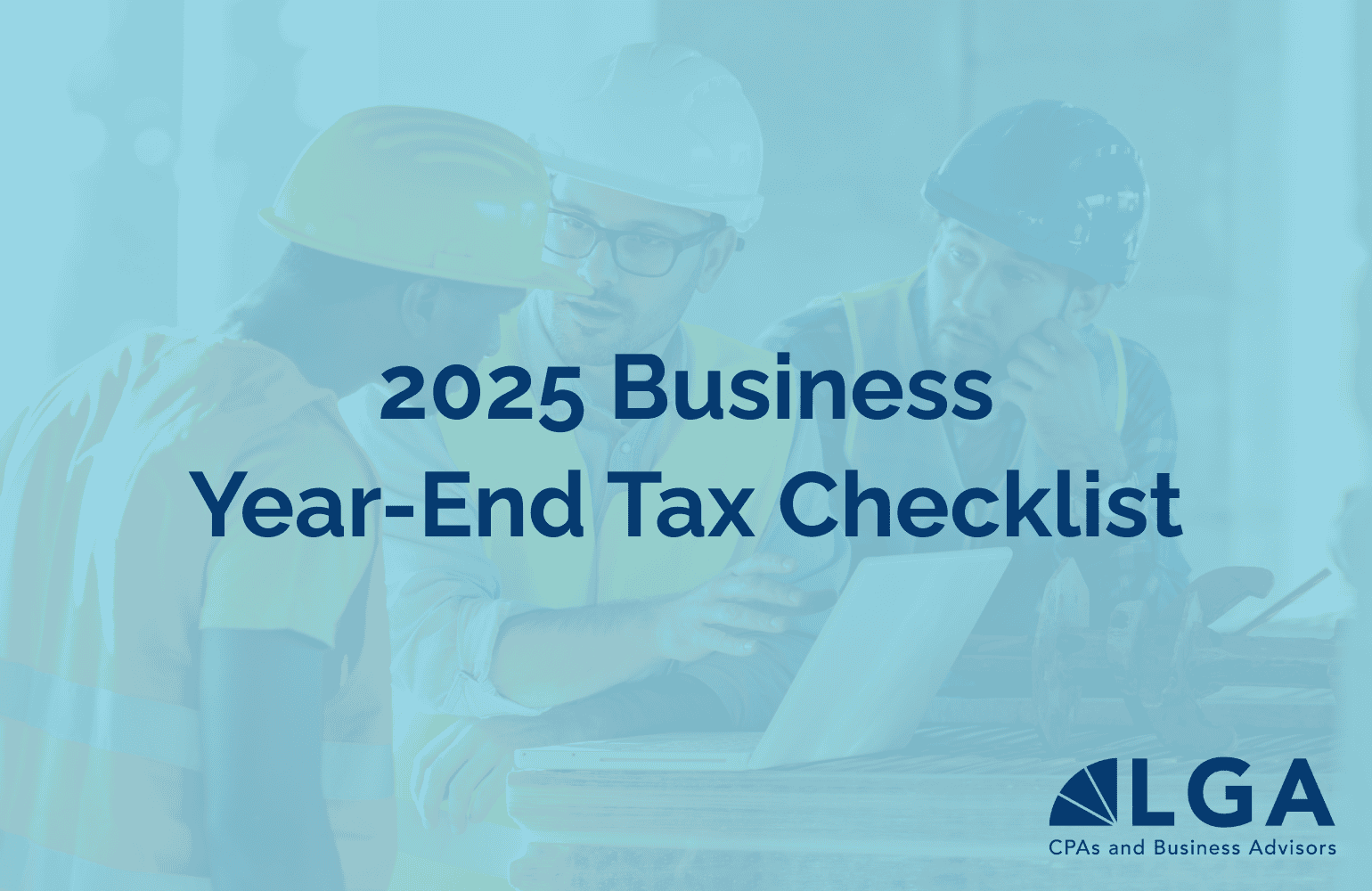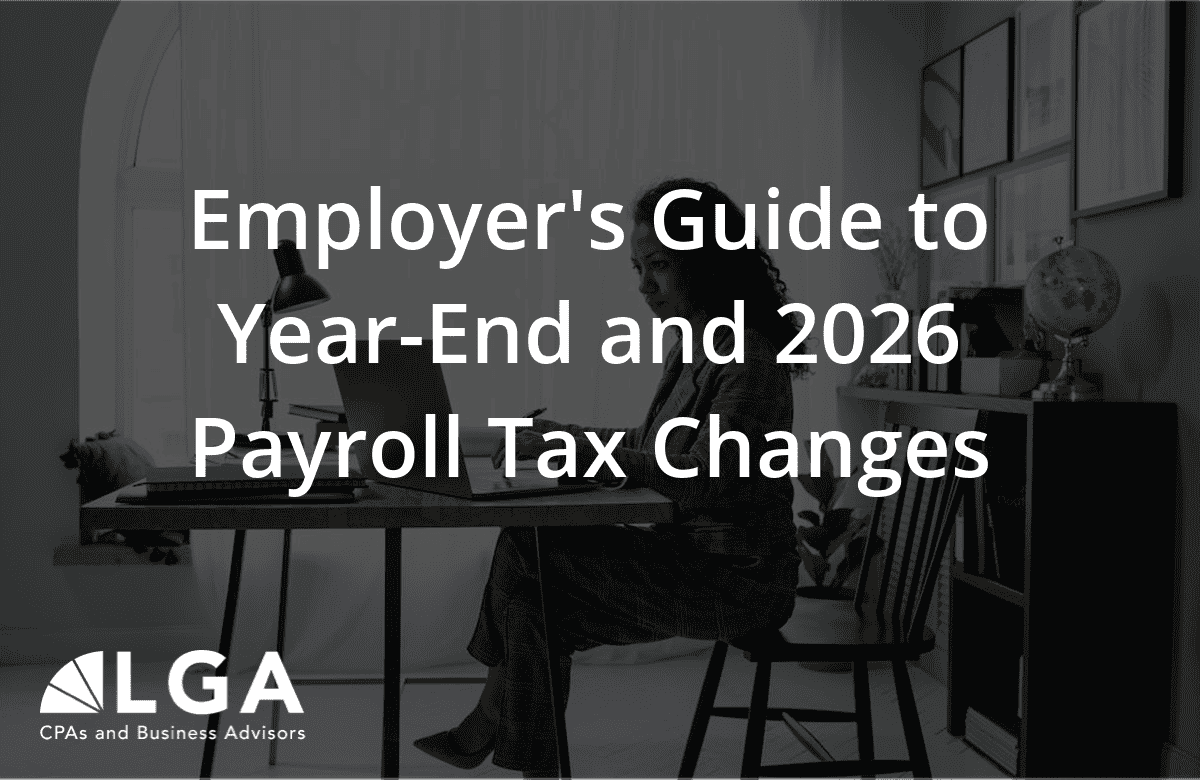Strategic Tax Changes Every Business Leader Should Know
The One Big Beautiful Bill ACT (OBBBA), signed into law on July 4, 2025, delivers the most significant rewrite of federal tax policy since the 2017 Tax Cuts and Jobs Act (TCJA). While much of the focus has been on individual tax changes, the law introduces substantial updates that directly affect business owners, CFOs, and financial leaders.
Some changes bring immediate tax relief. Others offer strategic opportunities for growth, investment, and long-term planning. This summary outlines the key updates and how your business can adapt.
Business Tax Rules Made Permanent
Some of the key tax rules from the 2017 TCJA tax overhaul were originally set to expire at the end of this year. The new law makes several of those provisions permanent, removing uncertainty and allowing companies to plan with more confidence.
These changes include:
- A flat 21 percent corporate tax rate that remains in place
- Ongoing eligibility for 100 percent bonus depreciation on qualifying property
- The 20 percent passthrough income deduction under Section 199A, known as the Qualified Business Income (QBI) deduction, is now permanent
- The Section 163(j) limit on business interest deductions remains at 30% of adjusted taxable income. Starting in 2025, the calculation reverts to an EBITDA basis, permanently, rather than EBIT, which will generally increase allowable interest deductions for many businesses.
- Permanently reinstates immediate expensing of domestic research and experimental expenditures (R&D), including software, for tax years beginning after December 31, 2024.
Expensing and Bonus Depreciation for Capital Investments
Businesses that purchase equipment or other qualifying property can still take advantage of full bonus depreciation or IRC section 179 expensing. This means they can write off the entire cost of qualifying assets in the year they are placed into service. Under the new law, the Section 179-dollar limitation is increased to $2.5 million, and the investment limitation is increased to $4 million for tax years beginning after 2024. These thresholds will be indexed for inflation starting in 2026.
The continuation of this rule supports better cash flow and more aggressive investment strategies. It is especially relevant for companies planning major capital expenditures or equipment upgrades over the next several years.

Passthrough Entities and SALT Planning
The Section 199A passthrough income deduction is now a permanent feature of the tax code. Owners of S corporations, partnerships, and sole proprietorships can continue deducting up to 20 percent of qualified business income each year.
The new law clarifies how the passthrough deduction applies to owners with multiple related entities, simplifying planning for complex structures. It also preserves the SALT cap workaround for passthrough entities. With the federal cap temporarily raised to $40,000 (increasing 1% annually through 2029), owners in high-tax states have more flexibility to manage personal and business tax exposure.
Research and Experimental Expenditures (R&D)
The new law reinstates full expensing for domestic research and experimental expenditures (R&D), including software development for tax years beginning after December 31, 2024. This eliminates the prior requirement to amortize these expenses over five years. Qualified small businesses may choose to apply this provision retroactively to tax years beginning after December 31, 2021. To take advantage of this option, qualified small businesses must submit amended returns for the applicable tax years and make the election no later than July 4, 2026. Alternatively, all taxpayers may deduct remaining unamortized domestic R&D costs from 2022–2024 in full on their 2025 return or spread the deduction evenly over 2025 and 2026. Foreign R&D costs must continue to be capitalized and amortized over 15 years.
Businesses investing in innovation, product design, or software can now deduct those costs in the year incurred improving cash flow, reducing taxable income, and potentially unlocking refunds by amending previously filed returns.
Credits for Workforce Development and Education
The new law builds on existing workforce incentives by expanding tax benefits tied to employee development and retention. Businesses can now claim a $1,700 credit for donations to approved Scholarship Granting Organizations (SGO), along with a $2,000 credit for each apprentice hired through a certified registered apprentice program.
The Work Opportunity Tax Credit (WOTC) has also been made permanent. In addition, employers can continue offering tax-free education assistance and student loan repayment programs.
Employment-Related Credits
For tax years beginning 2025, the FICA tip credit related to employer paid FICA taxes on employee tips can be claimed by certain beauty service businesses, i.e. who customarily provide barbering, hair care, nail care, esthetics or body and spa treatments.
The employer-provided childcare credit, IRC section 45F, has been increased to 40% for qualified childcare expenditures paid or incurred after 2025, maximum credit of $500,000. For eligible small businesses the credit is increased to 50% and capped at $600,000.
Estate and Succession Planning
The federal estate and gift tax exemption is now set at $15 million per person, with annual adjustments for inflation. Starting in 2025, the annual gift exclusion also increases to $19,000 per recipient.
For family-run and privately held businesses, these expanded limits create more room to transfer ownership without triggering federal tax. Whether transitioning leadership to the next generation or gradually gifting shares, business owners have greater flexibility to plan ahead and preserve continuity.
New Temporary Individual Deductions for Workers
For tax years 2025 through 2028, the OBBBA introduces new, temporary individual deductions that can benefit employees:
- Qualified Tips: Employees may deduct up to $25,000 of qualified cash tips received from occupations that customarily received tips on or before December 31, 2024. This deduction is subject to income phase-outs and requires proper reporting.
- Overtime Compensation: Individuals may deduct up to $12,500 ($25,000 for joint filers) of the premium portion of overtime pay required by the Fair Labor Standards Act. This also has income phase-outs.
- Auto Loan Interest: Individuals can deduct up to $10,000 of interest paid annually on loans for new personal-use vehicles assembled in the United States, purchased after December 31, 2024. This deduction is subject to income limitations and does not apply to leases or used vehicles.
Other Business Considerations
Several additional provisions could impact financial planning and compliance:
- A new 1 percent excise tax applies to outbound remittances of any amount when funded with cash, money orders, cashier’s checks, or similar physical instruments, beginning January 1, 2026. This tax does not apply to electronic transfers from regulated U.S. financial institutions. U.S. citizens may be able to claim a tax credit for erroneously collected tax when filing their annual income tax return if they are using a qualified remittance transfer provider.
- For tax years beginning 2026, employer-provided meals that are excludable from an employee’s income or are de minimis fringe benefits are disallowed as a business expense deduction.
- For tax years beginning 2025, C-Corporations are allowed a deduction for charitable contributions only if the aggregate of the contributions exceeds one percent of the corporation’s taxable income and does not exceed ten percent. Contributions in excess of the ten percent limitation may be carried forward to the subsequent five tax years.
Summary of Key Business Impacts
- Corporate tax rate is permanent at 21 percent
- Passthrough deduction (199A) made permanent
- Bonus depreciation continues at 100 percent
- Domestic research and experimental (R&D) expensing fully restored, retroactive to 2022 for qualified small businesses
- Workforce credits, apprenticeship, scholarship, and WOTC enhanced
- Estate tax exemption increased to $15 million per person
- SALT planning expanded options through 2029
Final Thought
The OBBBA creates meaningful opportunities for business owners to reduce tax exposure, improve liquidity, and enhance planning flexibility. While many changes are permanent, others are time-sensitive and require a proactive approach.
Whether your business is focused on growth, preparing for transition, or seeking to optimize its tax position, this is a key moment to act with intention. The path forward is clearer, but strategic execution is essential.
LGA is here to help. Our advisors work closely with private companies, owners, and finance leaders to navigate complex legislation and design effective strategies. Contact your advisor or reach out to us today to get started.







